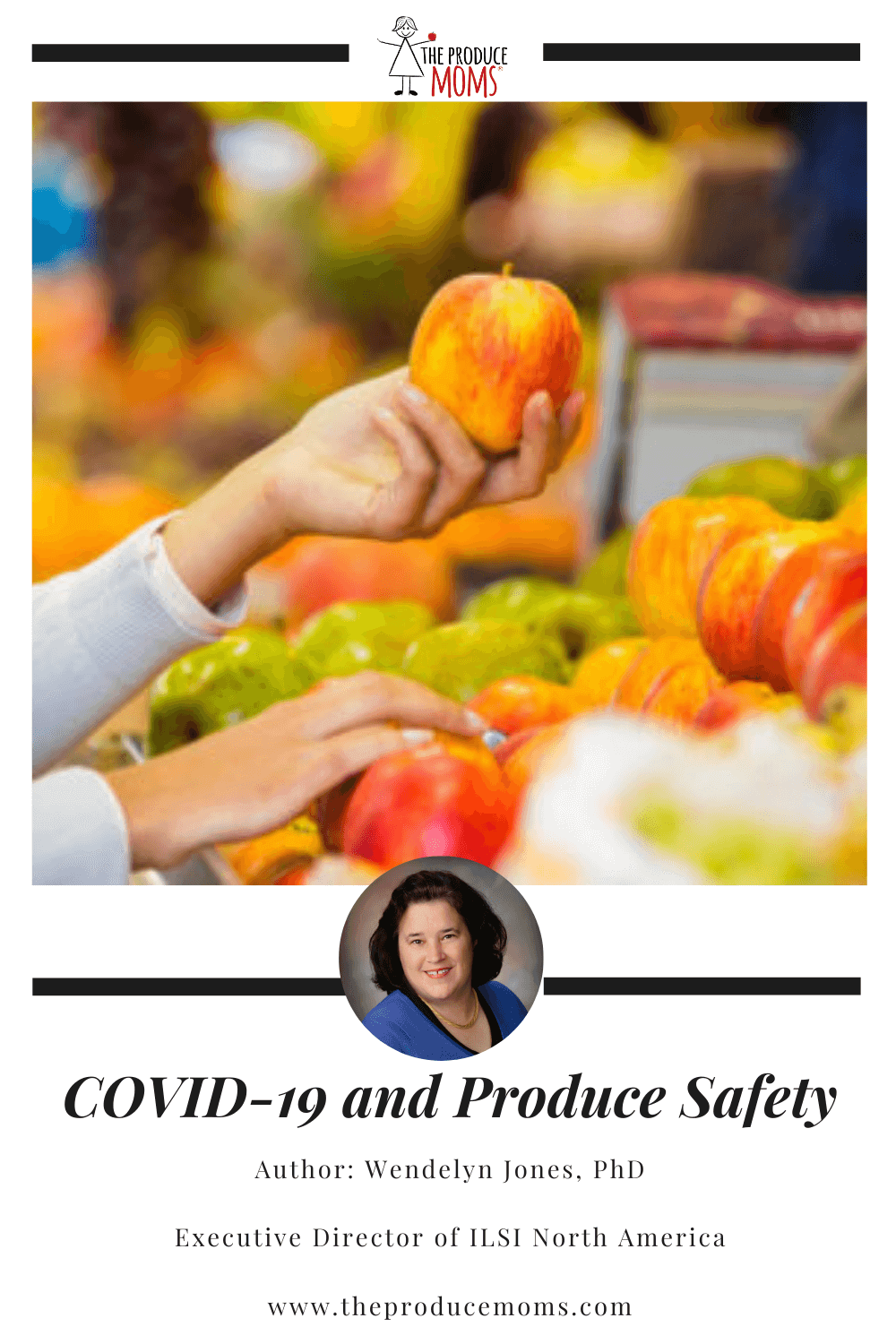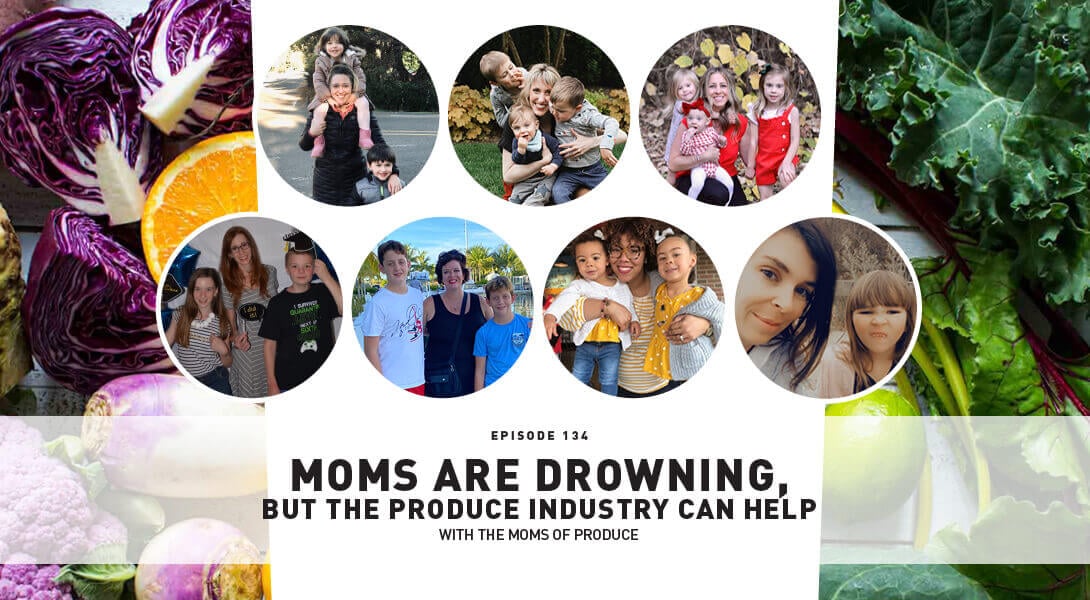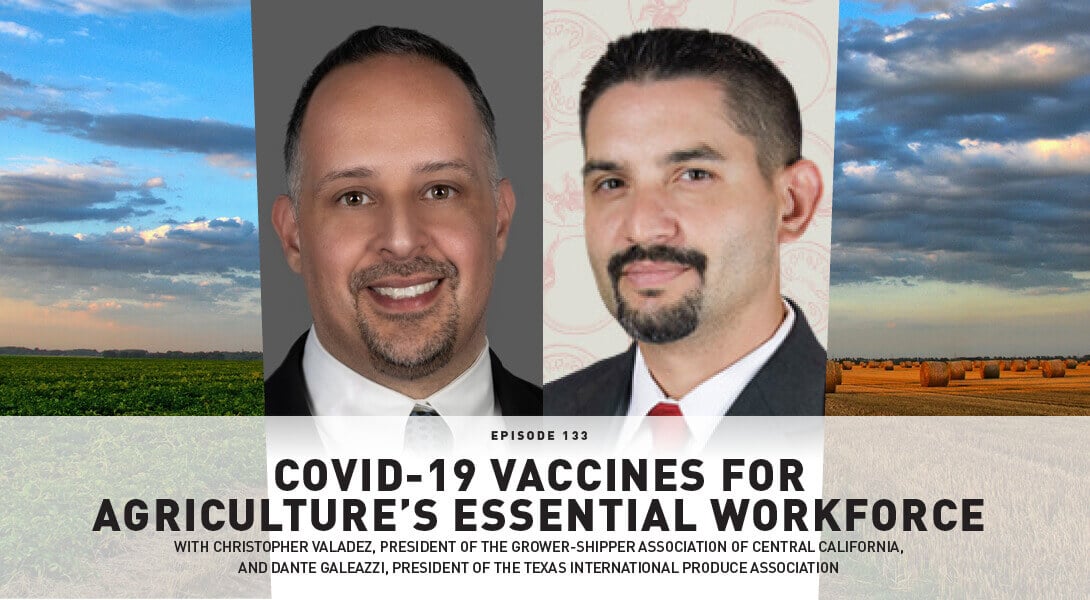COVID-19 and Produce Safety
Mar 31, 2020, Updated May 21, 2021

This post may contain affiliate links. Please read our disclosure policy.
IS COVID-19 transmitted through food or food packaging?
Food in the United States is among the safest in the world – including produce – even amidst the COVID-19 pandemic. There are lots of questions about the possibility of COVID-19 transmission through food or food packaging. It is good to ask the question as you care for your family. There is no evidence of food or food packaging being associated with transmission of COVID-19 at this time. This is FDA’s position. This is also the position of Canada and Europe.
How is COVID-19 spread?
As further noted by FDA, unlike foodborne gastrointestinal (GI) viruses like norovirus and hepatitis A that often make people ill through contaminated food, SARS-CoV-2, which causes COVID-19, is a virus that causes respiratory illness. Foodborne exposure to the virus is not known to be a route of transmission. The COVID-19 virus is thought to spread mainly from person-to-person. This includes between people who are in close contact with one another (within about 6 feet), and through respiratory droplets produced when an infected person coughs or sneezes. These droplets can land in the mouths or noses of people who are nearby or possibly be inhaled into the lungs. It may be possible that a person can get COVID-19 by touching a surface or object that has the virus on it and then touching their mouth, nose, or possibly their eyes. However, this is not thought to be the main way the virus spreads.
Safety precautions
If you are concerned about contamination of food and food packaging you have purchased from the grocery store, wash your hands after handling food and food packages when you return from the grocery store and after removing packaging from food. In addition, it’s always critical to follow the 4 key steps of food safety—clean, separate, cook, and chill – to prevent foodborne illness.
How long can coronavirus live on surfaces?
Mainstream media, such as USA Today, is summarizing the findings from the New England Journal of Medicine, which examined the stability of SARS-CoV-2 virus and the SARS-CoV-1 virus on various surfaces. (The SARS-CoV-1 virus caused SARS in 2002 and 2003.) In this study, NIH scientists, from the National Institute of Allergy and Infectious Diseases’ Montana facility at Rocky Mountain Laboratories, attempted to mimic virus being deposited from an infected person onto everyday surfaces. The scientists then investigated how long the virus remained infectious on these surfaces, including stainless steel, cardboard and plastic. Both viruses had an exponential decay in virus titer across all experimental conditions. The longest viability of both viruses was on stainless steel and plastic. The estimated median half-life of SARS-CoV-2 was approximately 5.6 hours on stainless steel and 6.8 hours on plastic. Given the similar stability of the COVID-19 virus and the SARS virus in this study, the results indicate the current pandemic is likely related to other factors including high viral loads in infected people and the potential spread of the virus prior to symptoms.
Handwashing is vital
Does this mean I need to worry? No. As noted by FDA “because of poor survivability of these coronaviruses on surfaces, there is likely very low risk of spread from food products or packaging that are shipped over a period of days or weeks at ambient, refrigerated, or frozen temperatures. It is more likely that a person will be exposed by person-to-person transmission involving close contact with someone who is ill or shedding the virus.” And, to repeat, because it is our best defense, wash your hands. Handwashing with soap for a minimum of 20 seconds remains a critical step in reducing the spread of COVID-19. Handwashing should be done often.
Keeping your immune system strong
With confidence in the safety of your food, it is also important to note there is no concrete evidence regarding specific dietary factors that can reduce risk of acute infections like COVID-19. However, we do know that eating a healthy diet, being physically active, managing stress, and getting enough sleep are critical to keeping our immune system strong. And, with all the family time, now is a great time to reinforce to your kids the importance of food safety and have fun in the kitchen.
Hopefully, this is helpful in answering some of your questions! Blogs, social media, and on-line resources are great at connecting us when we are physically distancing ourselves. However, misinformation is rampant. If you have more questions and want to learn more, please follow expert advice at cdc.gov, fda.gov, and nih.gov.
RELATED: The State of Foodservice Amidst COVID-19






